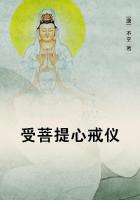Soon after the holidays were over, contrary to all our expectations, Messrs. Hamilton and Freeland came up to Easton;not to make a bargain with the "Georgia traders," nor to send us up to Austin Woldfolk, as is usual in the case of run-away salves, <232>but to release Charles, Henry Harris, Henry Baily and John Harris, from prison, and this, too, without the infliction of a single blow. I was now left entirely alone in prison. The innocent had been taken, and the guilty left. My friends were separated from me, and apparently forever. This circumstance caused me more pain than any other incident connected with our capture and imprisonment. Thirty-nine lashes on my naked and bleeding back, would have been joyfully borne, in preference to this separation from these, the friends of my youth. And yet, I could not but feel that I was the victim of something like justice. Why should these young men, who were led into this scheme by me, suffer as much as the instigator? I felt glad that they were leased from prison, and from the dread prospect of a life (or death I should rather say) in the rice swamps. It is due to the noble Henry, to say, that he seemed almost as reluctant to leave the prison with me in it, as he was to be tied and dragged to prison. But he and the rest knew that we should, in all the likelihoods of the case, be separated, in the event of being sold; and since we were now completely in the hands of our owners, we all concluded it would be best to go peaceably home.
Not until this last separation, dear reader, had I touched those profounder depths of desolation, which it is the lot of slaves often to reach. I was solitary in the world, and alone within the walls of a stone prison, left to a fate of life-long misery.
I had hoped and expected much, for months before, but my hopes and expectations were now withered and blasted. The ever dreaded slave life in Georgia, Louisiana and Alabama--from which escape is next to impossible now, in my loneliness, stared me in the face. The possibility of ever becoming anything but an abject slave, a mere machine in the hands of an owner, had now fled, and it seemed to me it had fled forever. A life of living death, beset with the innumerable horrors of the cotton field, and the sugar plantation, seemed to be my doom. The fiends, who rushed into the prison when we were first put there, continued to visit me, <233 LEFT ALONE IN PRISON>and to ply me with questions and with their tantalizing remarks. I was insulted, but helpless;keenly alive to the demands of justice and liberty, but with no means of asserting them. To talk to those imps about justice and mercy, would have been as absurd as to reason with bears and tigers. Lead and steel are the only arguments that they understand.
After remaining in this life of misery and despair about a week, which, by the way, seemed a month, Master Thomas, very much to my surprise, and greatly to my relief, came to the prison, and took me out, for the purpose, as he said, of sending me to Alabama, with a friend of his, who would emancipate me at the end of eight years. I was glad enough to get out of prison; but I had no faith in the story that this friend of Capt. Auld would emancipate me, at the end of the time indicated. Besides, Inever had heard of his having a friend in Alabama, and I took the announcement, simply as an easy and comfortable method of shipping me off to the far south. There was a little scandal, too, connected with the idea of one Christian selling another to the Georgia traders, while it was deemed every way proper for them to sell to others. I thought this friend in Alabama was an invention, to meet this difficulty, for Master Thomas was quite jealous of his Christian reputation, however unconcerned he might be about his real Christian character. In these remarks, however, it is possible that I do Master Thomas Auld injustice.
He certainly did not exhaust his power upon me, in the case, but acted, upon the whole, very generously, considering the nature of my offense. He had the power and the provocation to send me, without reserve, into the very everglades of Florida, beyond the remotest hope of emancipation; and his refusal to exercise that power, must be set down to his credit.
After lingering about St. Michael's a few days, and no friend from Alabama ****** his appearance, to take me there, Master Thomas decided to send me back again to Baltimore, to live with his brother Hugh, with whom he was now at peace; possibly he <234>became so by his profession of religion, at the camp-meeting in the Bay Side. Master Thomas told me that he wished me to go to Baltimore, and learn a trade; and that, if I behaved myself properly, he would _emancipate me at twenty-five!_ Thanks for this one beam of hope in the future. The promise had but one fault; it seemed too good to be true.














